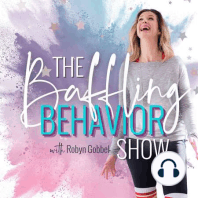32 min listen

Ep. 51: Equine Assisted Trauma Informed Psychotherapy: Strengthening the Foundation of the Brain
Ep. 51: Equine Assisted Trauma Informed Psychotherapy: Strengthening the Foundation of the Brain
ratings:
Length:
54 minutes
Released:
Sep 14, 2021
Format:
Podcast episode
Description
My guest on this week’s podcast is Michael Remole, a mental health therapist in Central Illinois who integrates trauma-informed equine assisted psychotherapy into his work with clients.A horse-lover since childhood, Michael was working on his master’s degree in counseling when he realized he could integrate his love for horses with his passion for working with people who had experienced trauma. Michael is now the COO and Director of Clinical Services at Gateway Family Services. He is trained in Natural Lifemanship as well as Dr. Bruce Perry’s Neurosequential Model of Therapeutics, which is focused on strengthening the foundation of the brain- especially the brainstem and diencephalon. Michael is also the founder and director of the Rising Tide Conference.Michael kicks of the conversation by talking about how the Neurosequential Model of Therapeutics provides a roadmap of brain development. According to the NMT, if we to help strengthen the brain (ourselves, our clients, or our children’s brain), we have to connect with the part of the brain that’s online in that moment. Michael stated that if he wants to connect to a horse – or human!- who is operating from the lowest part of it’s brain in a fight or flight response, Michael has to “speak the language of the brainstem”, which is rhythmic, patterned, and repetitive sensory input. While he’s working with horses, that could translate into how is swinging a rope or patting his legs- in a rhythmic, patterned, repetitive, sensory input.When horses are in survival-mode, they have a very difficult time accessing their ‘thinking’ parts of the brain. They need humans to be predictable as a way to communicate safety!This, of course, is true of humans, too.Connect with MichaelMichael is doing some truly ground-breaking work within his community- go check it out!Gateway Family ServicesGateway Family Services on FacebookRising Tide ConferenceMore about about Rhythmic, Repetitive, Relational, and Somatosensory ExperiencesEngaging the Body: Working with Dysregulated Kids is an eight-hour virtual training for professionals (of any kind!) eager to bring movement and body-based experiences intentionally into their work with clients. I’ve adapted my previously always-sold-out training for play therapists to be applicable to a wider range of professionals and decided to offer it virtually one last time.CLICK HERE to read about The Club and join the waitlist for the next time we welcome new membersGoodies you can find on my website:FREE Brilliance of Attachment eBook at https:/*****Not sure where to start? With 100 episodes, it's hard to know what episodes to listen to first!The START HERE private podcast takes the guess-work out. I curated the 10 episodes I think you should listen to first. Because it's a special private podcast, It's only available by invitation- so head over to RobynGobbel.com/StartHere to get yours. You'll then be able to listen in whatever podcast player you use! *******The Club is a virtual community for the families of kids with big, baffling behaviors and the professionals who support them. https://robyngobbel.com/theclubApplications for the 2023 cohort of Being With ~ a year-long immersive and holistic program for parenting professionals ~ are now open! https://robyngobbel.com/beingwith
Released:
Sep 14, 2021
Format:
Podcast episode
Titles in the series (100)
Connection or Protection? The Science of Opposition by The Baffling Behavior Show {Parenting after Trauma}